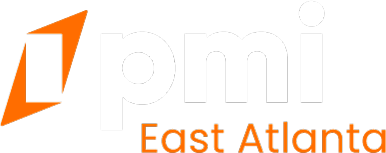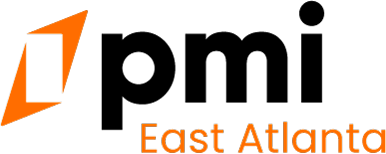Atlanta’s summers run hot and humid, and surprise repairs love to show up right when the heat index climbs. A tired air conditioner, a leaky water heater, or a slow drip behind a vanity can quickly turn into a bigger bill than anyone planned. The upside is that you can tip the odds in your favor with a practical set of efficiency upgrades that hold up to Georgia’s climate. These changes stretch the life of your systems, trim utility costs, and make your rentals easier to run. If you want a quick data point to guide your pricing decisions before you renovate, try a fast check with our free rental analysis to see where the market sits, then use the ideas below to lock in long-term savings.
Key Takeaways
- Energy efficiency reduces strain on HVAC and appliances, which means fewer service calls and replacements
- Water-saving fixtures and leak detection protect finishes and lower monthly bills
- Durable, low-maintenance materials handle tenant turnover and Georgia humidity better
- Climate-smart landscaping cuts irrigation time and groundskeeping costs
- A preventive approach with clear schedules keeps repairs predictable and budgets steady
Energy Efficiency That Matches Atlanta’s Climate
High heat, heavy rain, and pollen can punish building systems in metro Atlanta. Targeting efficiency reduces workloads and helps your equipment breathe easier through summer peaks and shoulder seasons.
Choose LEDs Throughout
LEDs last about 25,000 hours, which translates into fewer ladder trips and fewer mid-lease bulb emergencies. They also produce less heat, a helpful bonus when you want to keep interior temperatures stable during long summer afternoons.
Use Smart Thermostats for Real Savings
When thermostats learn tenant schedules and track performance, you see fewer spikes in runtime and earlier alerts when something looks off. That early signal helps you fix a failing capacitor or clogged filter before a coil freezes and the system goes offline. Reduced cycling also extends compressor life, which is one of the most expensive parts to replace.
Upgrade to High-Efficiency Appliances
Energy Star appliances generally draw less power and water, and the better engineering tends to correlate with longer lifespans. Consider:
- Refrigerators with improved insulation and variable-speed compressors for steady cooling.
- High-efficiency washers that reduce wear on motors and belts while using less water per cycle.
- Heat pump dryers that cut energy use roughly in half compared to traditional vented models.
- Induction ranges that keep kitchens cooler and reduce strain on ventilation.
- Energy-rated ceiling fans that move more air with less electricity, taking pressure off the AC.
Water Conservation That Prevents Damage
Moisture is the silent budget killer. A small leak can ruin cabinets, subfloors, and baseboards before anyone notices. Pair water-saving fixtures with smart detection and you reduce both bills and risk.
Install WaterSense Toilets and Faucets
EPA WaterSense toilets can save around 13,000 gallons per year per unit. Less water through the lines means fewer opportunities for leaks and fewer clogged drain calls. The savings show up every billing cycle, and the hardware is straightforward to maintain between tenants.
Go Tankless Where It Fits
Tankless water heaters avoid the corrosion issues that often end in tank ruptures. With proper sizing and annual descaling, a tankless unit can run for about 20 years. Atlanta’s hard water varies by neighborhood, so add a maintenance reminder in your schedule to flush or service units annually.
Add Leak Sensors in Risk Zones
Place sensors beneath sinks, behind refrigerators with ice makers, near water heaters, and under upstairs laundry stands. A simple alarm or smart notification lets you catch a slow drip before it stains a ceiling or swells a cabinet box. Given the repair ranges for water damage, a handful of sensors can pay for themselves quickly.
Durable, Low-Maintenance Materials That Stand Up to Turnover
Choose finishes that tolerate humid summers and quick turns between leases. You get fewer change-order headaches and a more predictable refresh budget.
Resilient Flooring
Carpet struggles in high-traffic rentals. Consider luxury vinyl plank, composite options, or engineered bamboo designed for moisture resistance. These surfaces clean easily after a move-out inspection, resist scratches, and typically last closer to 12 to 15 years with normal tenant wear.
Low-VOC, Washable Paints
Low-VOC formulas improve air quality and reduce odor complaints during make-readies. Look for scrubbable finishes in common areas and kitchens. You will repaint less often, and touch-up blends more cleanly across walls after minor scuffs.
Long-Lived Roofing and Siding
Metal roofing can push lifespan toward 70 years when installed and ventilated correctly, while architectural asphalt typically sits around 20. If a full roof replacement is not in scope now, consider attic ventilation improvements and reflective coatings that ease heat gain. For siding, choose weather-resistant products that clean easily after pollen season and heavy summer storms.
Landscaping That Works With Nature, Not Against It
The Atlanta region blends clay soils, heat, and periodic drought restrictions. Landscape choices that respect those conditions cost less to maintain and still look sharp for drive-by prospects.
Choose Native or Adapted Plants
Native grasses and perennials need less water and fewer chemicals. Consider options that handle heat and periodic dry spells, and group plants by water needs. This approach simplifies irrigation and helps your beds survive a week of summer travel when a tenant forgets the timer.
Use Drip Irrigation in Planting Beds
Drip lines push water to the roots where plants use it best. You avoid sidewalk overspray and reduce waste, which lowers the chance of erosion or mildew near foundations. Maintenance is simple, and repairs typically involve quick connector or line swaps rather than digging.
Add Solar Path and Entry Lighting
Solar fixtures install quickly and do not require trenching or timers. They brighten walkways for safety, help show off curb appeal in evening showings, and eliminate outlet overload issues.
Preventive Maintenance That Pays You Back
Efficiency upgrades shine when paired with a consistent maintenance rhythm. A clear plan reduces surprises and keeps tenants confident that their home will work the way it should.
Build a Seasonal Schedule
In spring, check HVAC refrigerant pressures, change filters, and clear condensate lines. In summer, confirm thermostat settings, inspect attic ventilation, and verify irrigation coverage. In fall, test weather stripping and smoke alarms. In winter, check crawlspaces or basements for condensation and insulate vulnerable piping.
Track Work Orders and Vendor Visits
Simple tracking gives you a running log of equipment history and helps you catch repeat issues. If you prefer to lean on a professional partner for larger scopes, PMI East Atlanta provides organized project management services that coordinate vendors, timelines, and budgets so upgrades do not derail rent-ready dates.
Reduce Conflict With Clear Standards
Fast repairs and transparent expectations keep relationships smooth. For additional perspective on communications and policies, review guidance on how to prevent tenant disputes so maintenance and billing questions do not escalate. When expectations are documented, you spend less energy refereeing and more energy improving the property.
Budgeting, Incentives, and ROI in Georgia
Even modest upgrades compound over time. Start where the problems hurt the most, then stack improvements as cash flow allows.
- Prioritize pain points by reviewing your service history, especially AC calls and recurring leaks.
- Price the delta between like-for-like replacement and an efficient upgrade.
- Track utility changes after each improvement to quantify payback and guide the next step.
- Ask utilities about rebates on thermostats, heat pumps, and efficient appliances. Incentives shift, so a quick call can unlock a useful credit.
- Consider vacancy timing by scheduling messier projects immediately after a move-out to protect rent-ready dates.
A Simple Roadmap to Start Now
- Replace remaining incandescent bulbs with LEDs and label closet fixtures for quick reference.
- Install smart thermostats, then set guardrails for cooling and heating to prevent extreme setpoints.
- Add leak sensors to kitchens, baths, and laundry areas, and test alerts on your phone before closing up cabinets.
- Swap one appliance at a time to Energy Star models as units fail, beginning with the biggest energy users.
- Upgrade flooring during your next major turn and switch to washable, low-VOC paints in high-traffic spaces.
- Convert bed zones to drip irrigation and refresh planting lists with native or adapted varieties.
- Document a seasonal maintenance checklist and assign dates so small items do not slip past busy weeks.
From Repairs to Reliability: Make Efficiency Your Advantage
Small changes add up across a portfolio, especially in a climate as intense as Atlanta’s. When you combine smart products, durable materials, and disciplined preventive care, your rentals run smoother and your expenses get easier to predict. Tenants notice the comfort and stability, which supports renewals and reduces turnover loss.
If you want a partner that manages the details while you focus on growth, PMI East Atlanta is ready to help. Our team blends local expertise with a systemized approach to budgeting, scheduling, and vendor oversight, and we align upgrades with your cash flow targets. To get tailored guidance for your properties, start a conversation through this link, then we will map a clear plan that fits your goals. Reach out here to talk with PMI East Atlanta.
FAQs
What eco-friendly upgrade delivers the quickest savings in Atlanta rentals?
For most properties, smart thermostats deliver immediate results because they reduce unnecessary runtime during peak heat. They are inexpensive, fast to install, and provide alerts that catch minor HVAC issues before they become emergency calls. If your units already use smart controls, upgrading to high-efficiency filters and sealing duct leaks is often the next fastest win because it improves airflow while reducing strain on the system.
How should I phase upgrades without disrupting tenants?
Start with low-impact changes that require little time inside the unit, such as LED swaps, aerators, and thermostat installs. Schedule larger projects during planned turnovers or within maintenance windows negotiated with tenants. Give clear advance notice, protect work areas with floor and dust coverings, and complete noisy or water-off tasks in tight, well-communicated blocks. Document steps so future turns go faster.
Are incentives available in Georgia for efficiency improvements?
Incentives vary by utility and program cycle. It is common to find rebates on smart thermostats, heat pump systems, and select Energy Star appliances. Check with your local electric and gas providers for current offers, then keep copies of invoices and model numbers for rebate submission. Even small credits help offset material costs when you are upgrading several units.
What materials hold up best to Atlanta’s humidity and tenant turnover?
Moisture-resistant luxury vinyl plank or engineered options outperform carpet in kitchens, main living areas, and hallways. Low-VOC, scrubbable paints reduce odors and allow for repeated cleanings between tenants. In exterior applications, focus on well-ventilated roof assemblies and siding that cleans easily after pollen season and summer storms, which keeps curb appeal strong with minimal effort.
How do these upgrades affect tenant satisfaction and renewals?
Comfort and reliability drive renewals in a very direct way. Units that cool quickly in July, have consistent hot water, and avoid recurring leaks produce fewer maintenance tickets and fewer frustrations. Lower monthly bills are a bonus that tenants talk about with friends, which supports word-of-mouth interest and stronger application pools when you list your next vacancy.


.webp)
